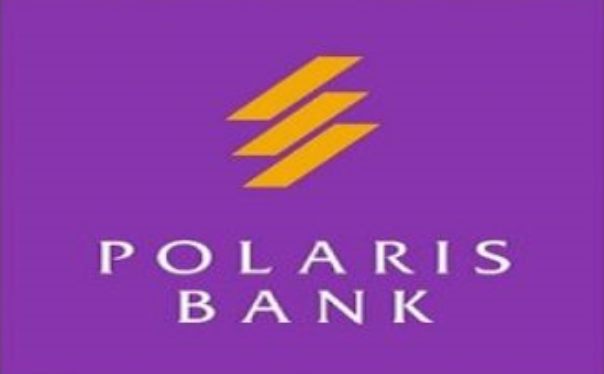E-Financial
Polaris Bank Unwraps New Digital Bank

With the rising opportunities in the e-payment systems accelerated by the COVID-19 era sweeping across the world, there are indications that Polaris Bank, one of Nigeria’s leading retail franchise, has thrown its hat into the ring as it unveils a new digital bank.

Feelers indicate that the Bank’s new Digital Bank which has for some time been in test mode amongst its staff and customers, is set to grow its market share, targeting a new generation of digital natives and immigrants who are socially and financially aware of innovations in self-service and stress-free transactions.
According to industry players, the long wait which greeted the launch was to ensure that the platform is robust enough to meet prevailing global standards and support other existing entities in the digital banking ecosystem.
As part of its enterprise transformation initiatives, the Bank has overhauled its IT infrastructure within the last two years and upgraded its digital capability.
According to Innocent Ike, bank’s managing director/CEO, “this has seen the institution grow to earn the confidence of the banking publics, as it has been able to offer quality banking services at the cutting edge of technology.” The plaudits which greeted the Bank’s recently published 2020 financial performance, has further earned the Bank’s digital transformation efforts, a shot in the arm.
Polaris’ digital Bank, offers a suite of services not readily provided by competitors. Some of such bundled benefits include; access to instant loans, accessing the platform service without being a prior customer of the Bank, and end-to-end account opening without entering a physical bank.
One of the competitive benefits of the Bank is its creation of a collaborative ecosystem that enables Application Programming Interface (API) Banking. API banking refers to a system that makes a bank’s services available to other third-party companies via APIs. API Banking helps both banks and third-party companies augment their complementary specialties and offerings more than they can provide to their customers by themselves.
Through its API, Polaris Bank is reported to have so far on-boarded new business start-ups, improved their market access, and ensured profit sharing with partners within the financial technology space. The Agro-businesses, educational institutions, e-commerce, are all set to benefit from the Bank’s platform.
According to recent data released by the Nigeria Interbank Settlement System (NIBSS), the volume of electronic payment transactions increased by 80 percent year-on-year to 54.07 billion in the first quarter of 2021 from 30.04 billion in the same period of last year.
As a result of the rise in e-payment transactions, income generated by banks via electronic channel transactions also increased by around 52 percent to N53.4 billion in the period under review compared with N35.2 billion in the same period of last year.
With the grand entry of Polaris Bank into the digital Banking space, it is expected that at the close of 2021, the 2020 NIBSS figures will grow exponentially and bolster the overall performance of the country’s e-payment ecosystem. Indeed, many youngsters and digital native enterprises constitute most of the population and the early adopters of digital innovation and lifestyle.
Polaris Bank is a future-determining bank committed to delivering industry-defining products, services, and digital platforms across all the sectors of the Nigerian economy.
The Bank is a member of the United Nations Environment Programme Finance Initiative (UNEP FI), which seeks to engage the private sector and the global financial sector to help create a financial sector that serves people and the planet while delivering positive impact.
E-Financial
Report Suspected Illegal Investment Schemes to SEC

Securities and Exchange Commission (SEC) has urged Nigerians to report any suspected illegal investment schemes to the commission for proper investigation and necessary action.

This is in the light of the recent collapse of Crypto Bridge Exchange (CBEX).
The Commission issued a notice on Thursday to the investing public, warning that Ponzi investment schemes pose a significant danger to the growth of the capital market.
In its latest advisory, the Commission highlighted the growing threats and risks posed by Ponzi schemes, illegal investment operations, and unregistered digital asset platforms.
It explained that fraudulent entities and individuals continue to exploit unsuspecting investors with deceptive promises of high returns, often leveraging the allure of digital assets to create a false sense of legitimacy.
“The public is strongly advised to be wary of investment opportunities that promise guaranteed or unusually high returns with little or no risk.
“These include unregistered platforms offering cryptocurrency investments, forex trading, or blockchain-based schemes, without undergoing the prescribed processes to obtain prior approval from the SEC.
“The SEC reiterates in this regard that, ‘If it sounds too good to be true, it likely is.’”
The Commission urged potential investors to conduct thorough due diligence before investing and to verify the registration status of the company or individual offering the investment through the SEC’s website.
The Commission explained that Section 196(3) of the Investments and Securities Act, 2025, criminalizes the promotion and operation of prohibited or unregistered schemes.
“This violation is punishable, upon conviction, by a fine of not less than ₦20 million or a prison term of 10 years, or both,” the Commission warned.
The SEC stated that it is fully committed to identifying and prosecuting offenders to the full extent of the law.
“We encourage the public to partner with the SEC to safeguard the integrity of the investment environment in Nigeria by promptly reporting suspected illegal investment schemes to the SEC,” the notice concluded.
E-Financial
Fintechs Add $18m to New Tax Initiative

The Nigerian federal government announced that the Electronic Money Transfer Levy (EMTL) generated $49.5 million in revenue, with fintech companies contributing $18 million.

This fund, as reported by the Federation Account Allocation Committee, is a considerable 56.80 percent increase over the $31.6 million earned during the same period in 2024.
Previously, the charge mainly affected established banking institutions. However, fintech firms have been included because they have contributed a phenomenal 2,507.94 percent growth in transaction values since 2020.
The EMTL is part of the government’s attempt to regulate the booming fintech sector, which completed transactions worth $29 billion in 2023 and $49.3 billion in 2024.
The EMTL was created by the Finance Act 2020 as an amendment to the Stamp Duty Act. It charges $0.03 (N50) for electronic transactions of $6.19 (N10,000) or more made through banks and financial institutions.
This tax seeks to capitalise on the increasing expansion of electronic payments, which will exceed $619.70 billion in total transactions by 2024.
In response to the burgeoning fintech sector, the government has increased its tax base, with annual EMTL collections expected to increase by 31.35 percent.
According to the Medium Term Fiscal Framework for 2025-2027, the federal government expects EMTL revenue to reach $142 million in 2025, up from $108 million in 2024.
However, industry experts have expressed concern about the potential impact of additional taxes on users.
E-Financial
CBN Puts Accumulated Savings, Liquid Assets by Nigerians at N75.65trn

Amid mounting macroeconomic uncertainty, Nigerians are leaning heavily towards savings and low-risk financial instruments, with recent data from the Central Bank of Nigeria (CBN) showing a marked increase in quasi-money holdings.

Quasi-money are assets that are easily and quickly convertible into cash. They are considered to be close substitutes for cash in the economy.
According to the CBN’s Money and Credit Statistics for March 2025, quasi-money, comprising savings deposits, fixed-term deposits and other liquid but non-transactional assets, rose to N75.65 trillion, representing a 3.65 per cent month-on-month (m/m) increase and a 26.42 per cent rise year-on-year, up from N59.84 trillion in March 2024.
The surge highlights a growing preference for capital preservation, as households and businesses seek refuge in interest-bearing instruments amid Nigeria’s ongoing economic slowdown.
“The rising volume of quasi money reflects both a cautious approach to spending and increasing trust in formal financial institutions,” said a senior analyst at Vetiva Capital. “It’s a defensive strategy by savers who are navigating inflationary pressures and volatile market conditions.”
The CBN has maintained a tight monetary policy for over a year, with high interest rates designed to tame inflation. This stance has made fixed-income securities, such as treasury bills and term deposits, especially attractive to investors.
In January 2025, the CBN’s auction for 364-day treasury bills saw an oversubscription of N1.47 trillion, with stop rates reaching 22.6 per cent. By mid-February, total subscriptions across tenors remained strong at N2.41 trillion, underlining sustained demand for secure, high-yield instruments.
The data also reveals that broad money supply (M2) grew to N114.20 trillion in March 2025, a 23.69 per cent increase year-on-year, with quasi money continuing to dominate M2 composition. Meanwhile, demand deposits rose to N33.96 trillion, up 17.65 per cent from the same period last year, while currency outside banks jumped 26.72 per cent to N4.59 trillion.
The central bank also reported mixed trends in domestic credit: Net domestic credit rose 12.47 per cent year-on-year to N103.37 trillion, though it dipped 1.20 per cent month-on-month.
Credit to the government grew 31.99 per cent to N25.86 trillion year-on-year but fell 4.63 per cent in March, suggesting a brief pause in government borrowing whilst private sector credit growth remained modest at 7.10 per cent pointing to conservative lending practices and subdued appetite for new debt in the real economy.
Analysts say the quasi-money uptick reflects a broader trend of financial system deepening, driven by digitization and formal banking efforts. The rise in savings could, over time, translate into stronger capital pools for lending, once macroeconomic stability returns.
While the flight to safety is a rational response to uncertainty, experts warn that over-reliance on fixed-income assets could limit economic dynamism in the long term.
However, for now, Nigeria’s financial landscape suggests that stability, not speculation, is the dominant mood among savers and investors.

 Telecom3 days ago
Telecom3 days agoNigeria Hits 1 Terabit Internet Traffic Milestone

 E-Financial3 days ago
E-Financial3 days agoFCMB Capital Markets Leads ₦11.85bn GLNG Bond for LNG Plant Expansion

 General News3 days ago
General News3 days agoFG to Introduce New Tax Credit Scheme to Replace Pioneer Status Incentive

 Telecom3 days ago
Telecom3 days agoMTN Nigeria Faces Class Action Lawsuit over Alleged Data Mismanagement

 News3 days ago
News3 days agoIMF Downgrades Nigeria’s Economic Growth Forecast Amid Oil Price Decline

 E-Financial2 days ago
E-Financial2 days agoUnion Bank’s Edu360 Initiative Scores Big for Nigerian Football Development

 News3 days ago
News3 days agoNITDA Fixes Date for Inaugural Meeting of the Startup Consultative Forum

 Telecom3 days ago
Telecom3 days agoMart Networks Unveils Invinsense 6.0: AI-Powered Cybersecurity Revolution in Africa


























